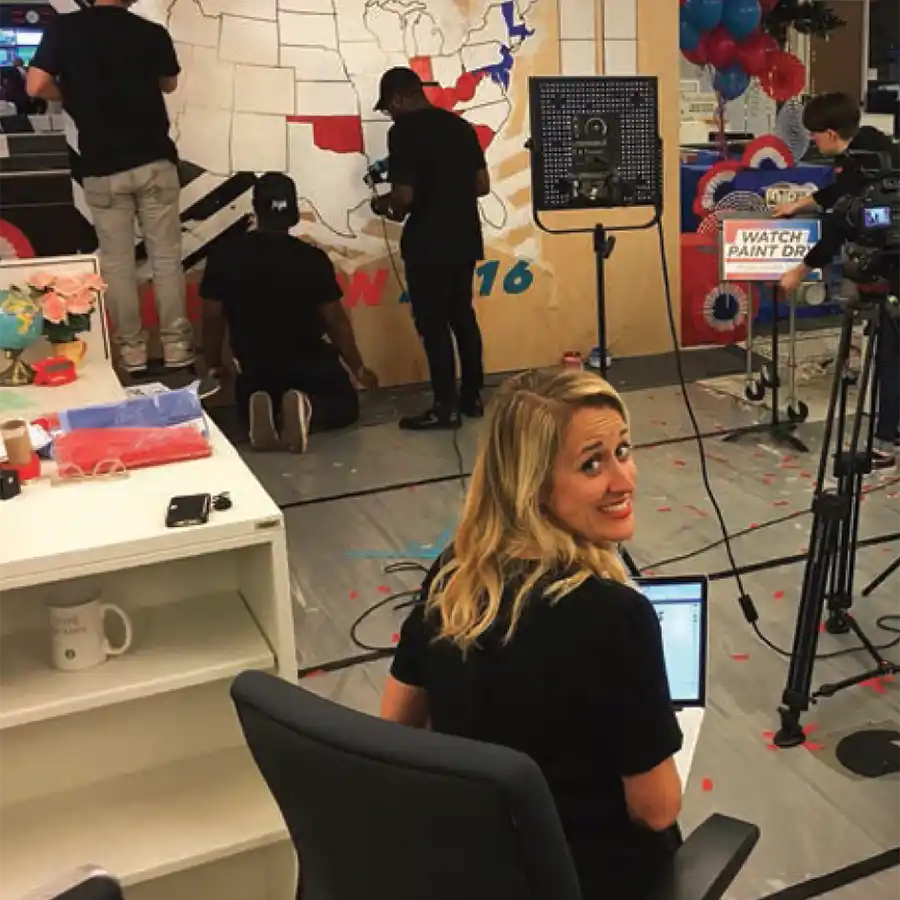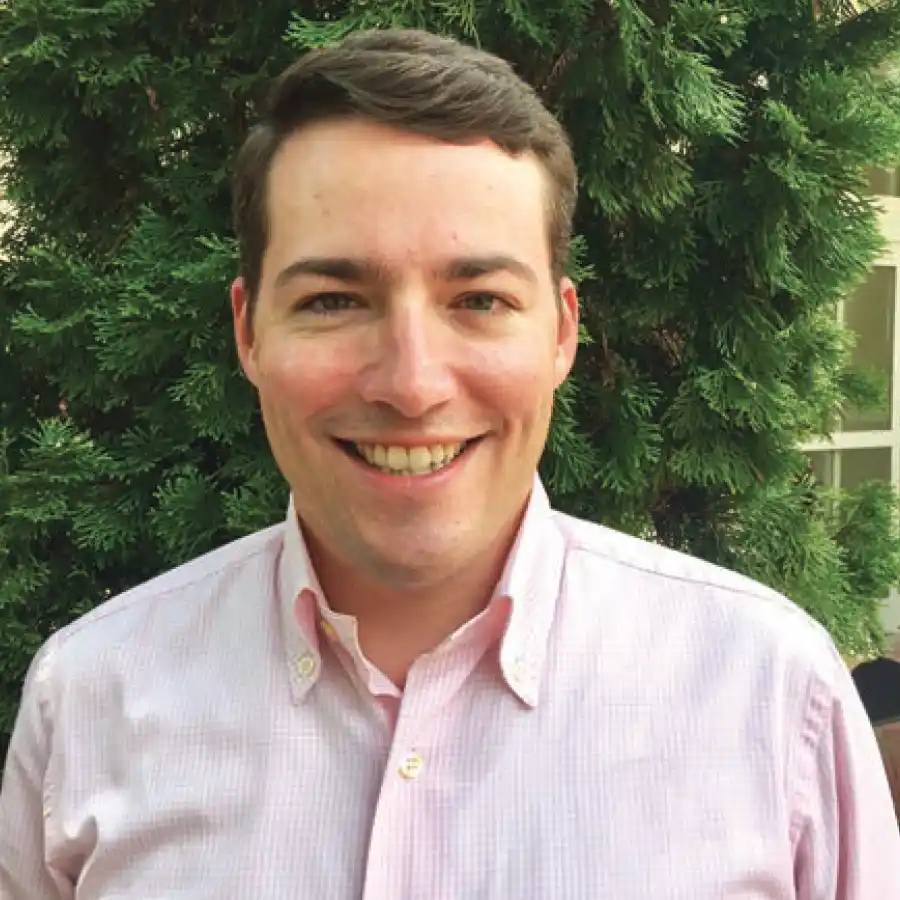Fall 2017 Newsletter
Featured Story
Telling Life’s Stories
By Meredith McGroarty

The ability to cut through the digital flotsam and connect with an audience, whether it is a group of corporate executives or a grandmother in Flatbush, is a skill as prized in the professional world as a head for numbers or a sharp working knowledge of digital branding strategies. Storytelling, the ability to synthesize and present information in a compelling way, however, is a skill that forms the bedrock of the study of history. Three graduates of our history program in three very different fields say this core skill set, honed in college, was the most vital to their career choices and achievements.
Addressing potentially the widest audience is Bo Saulsbury (’86), senior R&D staff member in the energy and transportation science division at Oak Ridge National Laboratory (ORNL). Saulsbury manages the division’s Fuel Economy Information Project, which aims to provide information to the public about fuel efficiency for various types of vehicles, including those using petroleum, electric, diesel, and other types of energy sources, as well as hybrid vehicles. Studying history helped Saulsbury develop two major skills necessary to his current work.
“The main thing history contributed is that there was a strong emphasis on critical and independent thinking in history class,” Saulsbury says. “The second thing that was valuable was learning how to communicate information through discussions, presentations, and debate topics where you have to defend your point of view.”
—Bo Saulsbury (’86)
Saulsbury noted that energy research ties in heavily with climate change, both on a technical level—hybrid vehicles perform differently in different climates—and on a larger, geopolitical one. Here, the specifics of history come into play, with past events serving as cautionary tales. He pointed to the 1970s when the fuel embargo caused wide-scale social disruption and provided a lesson on the dangers of relying on a single source—natural, political, or corporate—for one’s energy supply.
“Investment in alternative energy forms, reducing greenhouse gas emissions, and fighting climate change are all vitally important,” Saulsbury says. “The only way to bring that about, however, will be through educating the public, conveying facts about energy sources and efficiency, as well as a sense of context about the wider issues we all face.”

Claire O’Neill (’08) also noted that her history degree helped her gain a sense of context which, along with the ability to present information in a compelling way, is a necessary skill in her profession – journalism.
O’Neill recently became creative director of the climate desk at the New York Times, a position created as part of the paper’s drive to expand its coverage of climate change. O’Neill, who had previously been a producer at NPR, said her history degree helped her learn how to draw from different disciplines to research and tell a story.
“Training in history – research, analysis, writing, and storytelling – means you’re better equipped to understand the complexity of an issue, situate it in historical context, and understand how that will inform what happens next,” O’Neill says.
Such training was useful for her NPR job where she had to move deftly from one topic to another, from medium to medium, as the situation demanded.
“One day I might be working with the science desk on a story about pollution; the next, I could be working with the politics team to analyze inauguration speeches; and the day after that, I could be recording a live performance with a musician,” she says. “I love the variety.”
—Claire O’Neill (’08)

Both O’Neill and Saulsbury said studying history helped them convey complex information clearly to a wider audience. Tailoring information to specific audiences, however, is exactly what Blake Renfro (’07) does for a living.
Currently a program manager for executive development at the University of North Carolina (UNC) Kenan-Flagler Business School, Renfro conducts management consulting and executive-level seminars with a variety of clients, many of whom are corporate executives or members of the military.
“Making intelligent, well-informed connections between ideas and conveying important information to different audiences are things I do on a daily basis,” Renfro says. “Being able to tell a compelling narrative and tailor a narrative to different audiences is one of the most powerful things you can do. I learned that as an undergrad at UT.”
—Blake Renfro (’07)
Whether addressing a general audience or a specific one, being able to have confidence in one’s ideas while being open to other perspectives is a valuable skill in the workforce and one that Renfro believes faculty in the UT history department do a good job conveying. Career-wise, being able to demonstrate how one can apply these critical thinking, analytical, and communication skills to a specific job will be key to obtaining employment, he added.
“There are a lot of employers who’d rather have people with a specialized business or accounting degree, but if you can demonstrate how your skills can be applied, you’ll be better off than other majors,” Renfro says. “Being able to demonstrate that the degree is useful and you do have the skills to do these jobs is key to getting them.”
The path to a dream job may not be linear; it may branch and loop back, but anyone who has studied history knows there are lessons and pleasures in the detours and side alleys. Applying the knowledge gained through history study often makes visible the hidden connections between topics, fields, and listeners. Life is a story; and history helps you write your own.